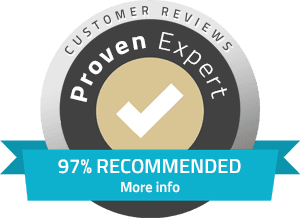Digital marketing plays a crucial role in various aspects of a job, regardless of the industry or position. Here are some ways digital marketing can enhance a job:
1. Skill Development
Diverse Skill Set: Learning digital marketing equips professionals with a range of skills including SEO, content creation, social media management, email marketing, PPC advertising, and data analysis.
Technical Proficiency: Familiarity with digital marketing tools and platforms (e.g., Google Analytics, SEMrush, Hootsuite) enhances technical capabilities.
Analytical Skills: Understanding and interpreting marketing data helps in making data-driven decisions, a valuable skill in any job.
2. Career Advancement
Increased Employability: Digital marketing skills are in high demand, making candidates more attractive to potential employers.
Career Opportunities: Opens up various career paths such as digital marketing manager, SEO specialist, content marketer, social media manager, and more.
Versatility: Digital marketing skills are applicable across different industries, providing more job opportunities and flexibility.
3. Business Growth
Enhanced Visibility: Digital marketing strategies improve a company’s online presence, driving more traffic to its website and increasing brand awareness.
Lead Generation: Effective digital marketing campaigns generate leads and convert them into customers, contributing to business growth.
Customer Engagement: Helps in building and maintaining relationships with customers through personalized communication and engagement.
4. Efficiency and Productivity
Automation Tools: Digital marketing automation tools (e.g., HubSpot, Marketo) streamline repetitive tasks, saving time and increasing productivity.
Targeted Marketing: Allows for precise targeting of specific audience segments, resulting in more efficient and effective marketing efforts.
Measurable Results: Provides metrics and analytics to measure the success of campaigns, enabling continuous improvement and optimization.
5. Innovation and Creativity
Creative Campaigns: Encourages the development of innovative and creative marketing campaigns to capture audience interest.
Trend Awareness: Keeping up with digital marketing trends ensures that professionals are using the latest techniques and strategies.
Content Creation: Enhances creativity through the creation of engaging and valuable content in various formats (e.g., blogs, videos, infographics).
6. Networking and Collaboration
Online Communities: Engaging in online marketing communities and forums (e.g., LinkedIn groups, industry-specific forums) helps in networking and knowledge sharing.
Collaboration Tools: Digital marketing often involves using collaboration tools (e.g., Slack, Trello) to work effectively with team members.
Influencer Partnerships: Building relationships with influencers can amplify marketing efforts and expand reach.
7. Adaptability and Lifelong Learning
Continuous Learning: The dynamic nature of digital marketing encourages continuous learning and adaptation to new tools, technologies, and strategies.
Problem-Solving: Involves identifying and solving marketing challenges, enhancing critical thinking and problem-solving skills.
8. Personal Branding
Online Presence: Helps professionals build their personal brand through effective use of social media, blogs, and other digital platforms.
Thought Leadership: Sharing expertise and insights through digital channels can establish individuals as thought leaders in their field.
9. Market Research and Insights
Understanding Consumer Behavior: Digital marketing tools provide insights into consumer behavior and preferences, which can inform business strategies.
Competitive Analysis: Enables professionals to analyze competitors’ digital presence and strategies, identifying opportunities and threats.
- +91 8300 665471
- info@vestaoneup.com



